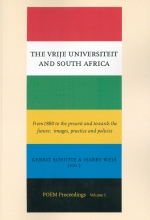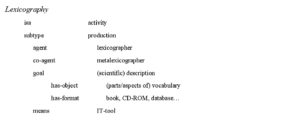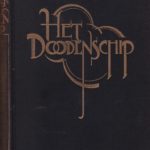The Vrije Universiteit And South Africa ~ Political Studies In South Africa. A Personal Perspective
 First, let us consider the discipline’s demography in South Africa. Over the last ten years political studies or political science has been taught in each of the country’s 21 universities. Aspects of the discipline were also taught in public administration courses at polytechnics; several of these institutions are now being amalgamated with universities. Historically, as with other areas of social science, politics as an academic community was sharply divided, socially and intellectually between the English language universities and the Afrikaans medium institutions. Within Afrikaner departments, traditionally, the discipline was influenced quite heavily by American behaviouralist and quantitative social science models and methods and researchers tended to focus their work within the confines of the formal political system (including the structures of ethnic homeland government). At the segregated black universities, departments were often led and staffed by graduates from Afrikaans institutions as well as from UNISA. In English speaking departments, by the 1980s, Marxist approaches had supplanted traditionally liberal ideas about politics and leading researchers concentrated their attention on popular political movements, emphasising those dimensions of their activities and ideas that corresponded most closely with expressions of class consciousness. In this context, the study of the discipline had a strong historical dimension: indeed at institutions such as Wits and Cape Town the boundaries between a ‘revisionist’ history grounded in Marxist conceptions of political economy and the discipline of politics became very blurred indeed. Today, though legacies of these differences between Afrikaans and ‘English’ institutions remain, the distinctions between Afrikaans-speakers and English language practitioners of the discipline in South African are less important, particularly since the introduction of English language courses at Afrikaans universities.
First, let us consider the discipline’s demography in South Africa. Over the last ten years political studies or political science has been taught in each of the country’s 21 universities. Aspects of the discipline were also taught in public administration courses at polytechnics; several of these institutions are now being amalgamated with universities. Historically, as with other areas of social science, politics as an academic community was sharply divided, socially and intellectually between the English language universities and the Afrikaans medium institutions. Within Afrikaner departments, traditionally, the discipline was influenced quite heavily by American behaviouralist and quantitative social science models and methods and researchers tended to focus their work within the confines of the formal political system (including the structures of ethnic homeland government). At the segregated black universities, departments were often led and staffed by graduates from Afrikaans institutions as well as from UNISA. In English speaking departments, by the 1980s, Marxist approaches had supplanted traditionally liberal ideas about politics and leading researchers concentrated their attention on popular political movements, emphasising those dimensions of their activities and ideas that corresponded most closely with expressions of class consciousness. In this context, the study of the discipline had a strong historical dimension: indeed at institutions such as Wits and Cape Town the boundaries between a ‘revisionist’ history grounded in Marxist conceptions of political economy and the discipline of politics became very blurred indeed. Today, though legacies of these differences between Afrikaans and ‘English’ institutions remain, the distinctions between Afrikaans-speakers and English language practitioners of the discipline in South African are less important, particularly since the introduction of English language courses at Afrikaans universities.
South African politics departments are small – between five and ten full time staff is normal, though Wits with its separate establishments for political studies and international relations employs more than twenty political scientists. Overall at the universities there are around 200 or so politics lecturers teaching about 10,000 students enrolled in undergraduate courses. This has been an expanding student population: in the aftermath of the ANC’s accession to government politics classes grew swiftly, contracted slightly in the late 1990s and once again grew, a reflection of trends in secondary school matriculation as well as optimistic perceptions among students about the subject’s vocational utility. Most first year politics classes (including those at former elite institutions such as Wits and Pretoria) are now recruited mainly from working class districts in African townships, though Cape Town and Stellenbosch represent exceptions to this generalization. Read more
The Vrije Universiteit And South Africa ~ ANNA And A ‘New’ Lexicography For South Africa
 Introduction
Introduction
In this paper we will try to make clear that the ANNA-project, in its own way, is one of the (possible) examples to show that different/changing situations, needs and target groups (may) require different/new approaches, models and products.
We will do so by taking the following steps:
– First, some basic terminology will be given.
– Secondly, the lexicographical situation in South Africa will be outlined.
– Thirdly, the ANNA-project itself will be presented.
– Next the ‘new’ features of the ANNA-project will be highlighted.
– To end with, the pros and cons of ANNA in a ‘new’ South Africa will be discussed.
Lexicography
We can define lexicography in at least two ways. The first ‘classical’ definition could read as follows: ‘Lexicography is the description of one or more aspects of one or more vocabularies in function of one or more target groups or users’. For the second, more ‘formal’, definition the following ‘frame’[i] could be used:
Although the latter definition differs formally from the former, it does not really do so from the point-of-view of content. One can easily paraphrase the above frame-based definition as: ‘Lexicology is an activity which leads/should lead to a product made by lexicographers/metalexicographers with the aim to come to a (scientific) description, etc’.
Next to the possibilities that a frame-based definition offers on the levels of explicitness and consistency, it serves our purpose better than the more traditional one in two ways:
– First, it makes clear the fact that lexicography as an activity is no longer to be considered as a solitary act of a lexicographer, but rather as a scene on which next to lexicographers, different players, such as metalexicographers (theoreticians, designers of models/theories upon which to base lexicographical practice), tool developers, project managers, data providers, users, and publishers play a role.
– Secondly, as one can observe, a frame has a stable side (the left hand side, the slots) and a variable side (the right hand side, the fillers). It is to be expected that changes in the fillers over time will entail changes in the character of lexicography itself and so lead to a ‘new’ lexicography. In particular this is what has happened to the fillers for the ‘format’, ‘means’, ‘beneficiary’, and ‘other-participants’-slots during the last decades.
The Vrije Universiteit And South Africa ~ Stimulating Research Future
 The wealth of Africa
The wealth of Africa
Wealth producing innovation does not occur in a vacuum.
Technological breakthroughs do not automatically lead to increased wealth. More wealth does not lead to a better society.
Research for a better life
The benefication of research into wealth requires
– Skilled people;
– And ideas;
– That translate into novel practices;
– Organisations;
– And products
In other words, it takes social innovation to make wealth through research and it takes research to make innovation in the 21st century.
The NRF – A South African national mandate in an African context
Support and promote research
– through funding, human resource development and the provision of the necessary research facilities
To facilitate
– the creation of knowledge, innovation and development in all fields of science and technology, including indigenous knowledge.
In order
– to contribute to the improvement of the quality of life of all the people of the Republic
Managing and stimulating research across the knowledge spectrum
The Vrije Universiteit And South Africa ~ International R&D Cooperation With South Africa: Selected Policy Perspectives
 This paper endeavours to offer policy perspectives on international relations between South Africa and other countries in general and South Africa and the Netherlands in particular. More specifically, the paper looks at South African Dutch relationships against the historical background on the one hand and current research priorities for South Africa on the other. The paper, first of all, offers a number of propositions that will guide the remainder of the paper. In the second place, a listing is offered of some notable South African scholars and leaders with Dutch connections. Some of the characteristics of the South African research and development (R&D) system are next offered, followed by main challenges faced by that system. The fifth section deals with its comparative strengths and weaknesses. In the sixth section different sets of priorities are given after which the paper looks at different aspects of international R&D cooperation. The paper concludes with a number of recommendations for the future.
This paper endeavours to offer policy perspectives on international relations between South Africa and other countries in general and South Africa and the Netherlands in particular. More specifically, the paper looks at South African Dutch relationships against the historical background on the one hand and current research priorities for South Africa on the other. The paper, first of all, offers a number of propositions that will guide the remainder of the paper. In the second place, a listing is offered of some notable South African scholars and leaders with Dutch connections. Some of the characteristics of the South African research and development (R&D) system are next offered, followed by main challenges faced by that system. The fifth section deals with its comparative strengths and weaknesses. In the sixth section different sets of priorities are given after which the paper looks at different aspects of international R&D cooperation. The paper concludes with a number of recommendations for the future.
Two background notes may be in order at this point. The analyses in this paper are mainly informed by the author’s exposure to international collaboration (for instance, the collaborative study undertaken by the Vrije Universiteit and the Human Science Research Council on social movements), interpretations of national policy and priorities, and exposure to the business of a national advisory council. Finally it is necessary to say that this paper focuses on science, technology and innovation, more particularly on research and development, with an emphasis on the social sciences and humanities. The following limited set of propositions guided the composition and analyses in this paper.
– Academic exposure to the Dutch Higher Education and Science and Technology systems in the past contributed substantially to both the emergence of a democratic dispensation and also to scientific excellence in South Africa – and it will hopefully in future contribute to both.
– The democratisation of South Africa has brought in its wake the potential for full participation in the global research and development network, including training, collaborative research, international funding for research, access to opportunities – training and research – access to job opportunities, and mobility of research workers. The country still has a long way to go to realise all the potential inherent in these new opportunities.
– South Africa possesses a reasonably strong science and technology system which was inherited from the previous constitutional dispensation.
– There still remains, however, a number of factors that could inhibit optimistic scenarios about the future: The relative geographic isolation of South Africa, Information Communication Technology limitations, asymmetrical needs (for instance the challenge to match the need for excellence with that of capacity development), and the relatively limited financial capacity of the country.
– South Africa is well placed to offer Europe in general and the Netherlands in particular unique opportunities for good quality collaboration in various fields of research and development, especially if certain conditions are accounted for.
The Vrije Universiteit And South Africa ~ ‘New’ Scientific Practice In South Africa With Special Reference To Land Reform
 …training new generations of scientists and technologists oriented towards the solving of real problems (White Paper on Science and Technology 1996).
…training new generations of scientists and technologists oriented towards the solving of real problems (White Paper on Science and Technology 1996).
The SandT capacity of the country is running as fast as it can, but is still losing ground (National Research and Development Strategy 2000).
Introduction
The landscape of scientific practice and higher education in South Africa has changed drastically since 2 February 1990. The changes that occurred in these fields during the last decade of the 20th century were probably the most incisive in the history of science and higher education in South Africa.
When the democratically elected government came into power in 1994, science was confronted with two main challenges, namely to transform the system so that the welfare of all the inhabitants could be promoted and to make South Africa competitive in a globalising world.
The new government inherited a sound science infrastructure. It was a widely dispersed and uncoordinated system in which scientists enjoyed international recognition for transplanting hearts and for enabling the deepest exploitation of mines in the world. However, the system was mainly directed at the promotion of the welfare of the white community and was strongly focussed on military defence; the provision of energy and food; and the combating of diseases.[i]
In this transformation process, South Africa was very receptive to theories, models and schools of thought. Expertise from abroad was not provided in all instances without direct or subtle influence. There are already indications that certain models, that were applied successfully elsewhere, cannot be transferred without adaptations to the South African situation, where complex issues have to be addressed. The question that arises is whether the government implements the policy documents that were designed by intellectuals who are not part of the bureaucracy.
Two examples are applicable to the aims of this paper. Firstly, the work by Gibbons et al. (1994) entitled The new production of knowledge: The dynamics of science and research in contemporary societies and also Scott et al.’s (1995) The meaning of mass higher education have had a strong influence on policy formulation regarding science and regarding higher education (Kraak 2000). Secondly, the World Bank has made significant inputs to the establishment of the policy on land reform. There is at present a widespread debate on whether a shift of emphasis from Gibbons’ Mode 1 (basic) to Mode 2 (interdisciplinary or applied research) has had a beneficial effect on teaching and research in higher education in particular and on science in general. Older academics and researchers find it difficult to switch from Mode 1 to Mode 2. Younger researchers and some faculties at universities have probably embraced this new paradigm and the pursuit of relevance so strongly that it now threatens to smother them. In this regard there appears to be a great deal of validity in Sheila Slaughter’s statement, as quoted by Kraak (2000: 33):
… that the commercialization of the academy will lead to a decline of the canonical tradition itself, the weakening of the professorate and scholarly research and the triumph of a managerial mode of control in the university not unlike that of corporate capitalism. Read more
The Vrije Universiteit And South Africa ~ The Changing Higher Education Landscape In South Africa
 The apartheid legacy
The apartheid legacy
In order to contextualise the discourse on the changing higher education landscape in South Africa, it is necessary to briefly sketch the historical origins and thrust of the ideology underpinning black education in South Africa during the apartheid era.
Hendrik Verwoerd and apartheid education laws 1953-59
Black education in South Africa was originally introduced, developed and funded by Christian missions of various denominations. Subsequently and as the benefits to the economy of an educated black workforce became apparent, the government introduced a system of subsidization for the mission schools. The mission schools offered the same content and used the same syllabuses as the white schools, and the successful students received the same diplomas and certificates as the white students. Some of these black mission schools became well known for excellence, such as Lovedale in the Cape (Mandela’s old school), Marianhill and Adam’s College in Natal.
Fort Hare Native College, later Fort Hare University, was established by the Presbyterian Church and drew students from as far afield as east and central Africa. It boasts among its graduates such famous African leaders as Robert Mugabe and Nelson Mandela.
In the early 1950s, Hendrik Verwoerd was Minister of Native Affairs, and immediately complained that missionaries were providing the wrong kind of education for black people, and were trying to make ‘black Englishmen’ out of them. In 1953, he introduced legislation to remove black education from mission control to that of the Department of the Department of Native Affairs, vowing that:
I will reform it [black education] so that Natives will be taught from childhood to realize that equality with Europeans is not for them.
There was ‘no place [for blacks] above the level of certain forms of labour. So, what is the use of teaching a Bantu child mathematics when he cannot use it in practice? Education must train and teach people in accordance with their opportunities in life’. Read more




